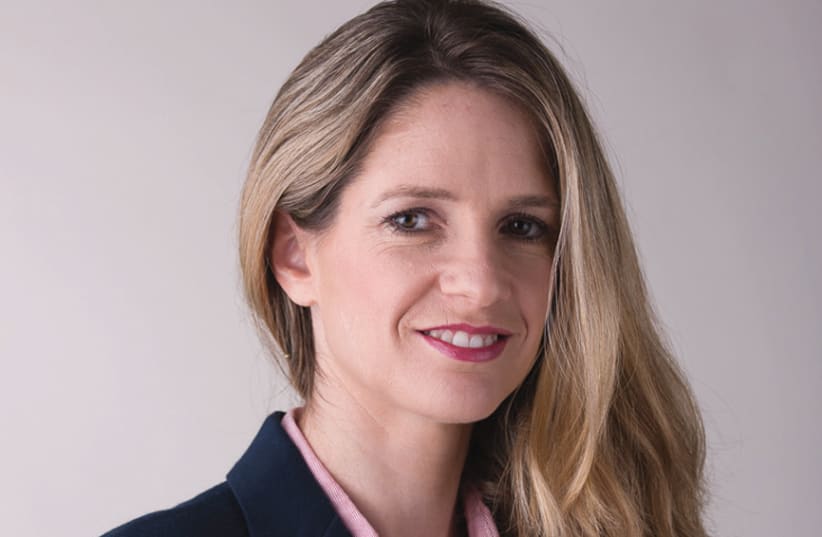There was considerable excitement at the opening event of the fourth Israel-China In-innovation Summit held a few weeks ago at the Foreign Affairs Ministry in Jerusalem when Prime Minister Benjamin Netanyahu and Chinese Vice President Wang Qishan visited some of the stalls of technology companies and start-ups in order to get their own impression of the creativity and courage of the Israeli inventors and developers.
The pair’s first stop was the stall of Israeli hi-tech company IRP Systems, where CEO Moran Price, 41, explained the innovative and fast electric propulsion systems that the company has developed. They even had the honor of operating a vehicle that had won a
world championship for remote-controlled vehicles.
What those present at the event did not know was that IRP Systems has specialized mostly in develop ing and selling powerful electric propulsion systems and products to the aviation industry in Israel and abroad, and that the decision to expand into the global automotive industry was a dramatic process for this small quality company. It was founded in 2007 by Moran Price’s husband, Paul Price, who is also the company’s CTO.
“About two years ago, we realized that the electric-propulsion technology that we had developed for the aviation industry was also compatible with the global e-mobility market. At the time, this industry was just gaining momentum. Our system could speed up the process of it becoming a mass market,” explains Price, an electronics engineer and graduate of the Kellogg-Recanati Management Program. “We had the knowledge and the reputation, and we had already gained considerable experience in our work in the global aviation market, a highly demanding field. We knew that this was our advantage over other entrepreneurs who focused mainly on technological innovation and less so on the stages after this.”
How do the duration of your presence in the industry and the experience show?
“During our years in the aviation market, we developed a special IP, built an organizational team that has always exceeded our expectations, and we learned a lot about the process management of a product’s life cycle – from idea to serial production,
standards, registration and after-sales service. A number of our products have already been installed onboard planes of different kinds as well as in electric aerial vehicles. Our systems are also used in two wheel vehicles, such as electric motorbikes.
“In addition to this, we have been active in the serial production of propulsion systems for competitive remote-controlled vehicles. We have been through tough times. Trying to compete as a small company looking to grow and up against the big players and
the authorities – none of this is easy. Either way, the decision to enter the global automotive market was not taken lightly.”
Why is that?
“First of all, because such a step requires massive investment in development and infrastructure, which was beyond our financial ability. This decision essentially required us to take a step that we had never taken before – finding investors, i.e. letting the right in-
vestors in and doing so at the right time. We put a lot of energy into this process and we received attractive ffers. However, somehow it did not work out.
“In the end, Ran Achitov, who is a close friend and has supported us as a business from day one, and Avi Eyal, who has also become a friend, both from the Entrée Capital Fund, became our investors.”
Was this the most important decision that you have ever made as the CEO of the company in financial and business terms?
“Definitely, because for me, an investor is never solely a financial investor but a partner in the truest sense of the word. It was clear to us that we would not follow the traditional path of the idea being followed by fund-raising in order for it to become a reality. We
chose a slightly more difficult and longer path. However, we entered the start-up world very mature and with a lot of experience along with a great deal of insight that we gained along the way. And indeed, from our connection with Ran, Avi and the Fund, we
learned that when there is synergy, trust in your own abilities and good will, all of this energy is channeled into positive action – and the business advances more quickly.”
How does this manifest itself in practical terms?
“When we had just started working with them, good things happened to us. For example, we began to prove the feasibility of an electric vehicle in a local cooperation with Renault, Nissan and Mitsubishi in Israel, who made such a vehicle available to us. At
the same time, we were selected as the supplier of propulsion systems for an innovative electric motorbike. We also began to develop propulsion systems for electric passenger planes.
“At the Israel-China Innovation Summit, we were even chosen by the Israeli Innovation Authority as one of the five companies that would be presented to the vice president of China and the delegation accompanying him. It is possible that some of this would have happened anyway, but there is no doubt that the support that we have had from Entrée touches upon all areas of the business, including its employees, its customers, its suppliers and to anyone involved in what we do.”
What advice would you give to young managers at the start of their careers?
Be daring and do not be afraid of success. I learned that paradoxically, people are more afraid of success than they are of failure. The thought of “What happens if I succeed?” comes with no fewer concerns and uncertainties than “What happens if I fail?”
Our time is limited, and we need to be daring and make things happen. Once you overcome the fear, success will follow.
